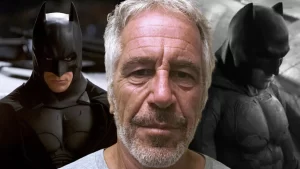The Legend of Lincoln
A Film Review of Lincoln
By: Lawrence Napoli
To quote fictional President Andrew Sheperd, “America isn’t easy. America is advanced citizenship. You gotta want it bad.” Of course, the most common perception of “citizenship” in today’s America is layered with apathy, entitlement, conspiracy, cynicism and a general opinion of “my vote doesn’t count.” It’s easy to presume that this zeitgeist has always existed through the course of American history, but if we are to presume any historical accuracy of a film such as Lincoln (and the impressive list of institutions at the end of the credit scroll certainly suggests it), I would have to disagree with that statement. One key difference between the Civil War era and today was the existence of bold and true leadership in the past. Few American politicians are recognized in a positive light for any reason and fewer still are noted as such in the course of their active civil service. This film, however, is clear about identifying the genuine love and respect for Abraham Lincoln within the remaining union by his constituents and opponents respectively. Make no mistake, politicians of yesteryear are portrayed as no less agenda-affiliated, arrogant and underhanded as they clearly are today, but there was and will never be “another” Abraham Lincoln as this individual’s resolve, intelligence, charisma and presence places him above and beyond the eternal rat race that is American politics.
The man, the myth, the legend.
Lincoln’s script was penned by Tony Kushner which is partly based on the novel Team of Rivals: The Political Genius of Abraham Lincoln written by Doris Kearns Goodwin. The story is a biopic period piece that centers on the presidency of Abraham Lincoln during the time preceding the passage of the 13th Amendment to the American constitution and the formal end of the Civil War. Although the story does center on Lincoln, the president – Lincoln, the man; it is also happens to be a very thorough observation of the day to day operations of the federal government at the time. As much as Lincoln has been historically identified with emancipation, this film acknowledges the efforts of several others to help make that a political reality. This film is an exquisitely executed dialogue driven drama, but viewer beware. This film severely lacks action so those who can’t lock into a 2.5 hour session of verbal sparring may be turned off, yet this fact really doesn’t hurt this film due to the strong performances by the entire cast. The most powerful element of this story is the portrayal of Lincoln himself. His history and legend is undeniable, but his portrayal as a grounded human being, humble and grandfatherly infuses Lincoln’s legacy with the essence of real world heroism that turns him into one of the truly super human beings in the history of humanity. As horrible as this point in American history was, this film showed it wasn’t completely devoid of merit.
[[wysiwyg_imageupload:4231:]]
Troubling times to say the least.
Director Steven Spielberg once again showcases his knack for dramatizing American history in a way that is interesting, relatable and entertaining, but the one element that sells all of his films beyond the special/visual effects, costumes, sets and production value, is the performance. Spielberg gets maximum effort from his actors and you can point directly towards his ability to communicate and empower even those who may have bit parts to produce signature performances. Even the most arrogant, ignorant and clueless graduate of UCLA film school could direct Daniel Day-Lewis in his or her sleep, but very few seasoned professionals could get something special out of Sally Field, whom I initially thought was a complete miscast for the role of Mrs. Mary Todd Lincoln. Spielberg shows his passion for the subjects he researches and it reflects in his casts’ performances which impacts the outcome of the final cut of his films. His work proves that there is a significant difference between directors and auteurs.
[[wysiwyg_imageupload:4232:]]
True blue Union soldiers.
The cast of Lincoln demonstrates what a roster of seasoned veterans can do when they are all focused on the task at hand. I must begin with Sally Field as Mrs. Lincoln who hasn’t wowed me in anything since her performance in Forest Gump back in 1994. Her rendition of Mary tip-toed around her historic turbulent relationship with Abraham by consistently maintaining the character’s maternal passion for her children as well as her intellectual confidence by holding her own with her husband’s coworkers amidst the business of government. David Stratharin is one of my favorite actors and his portrayal of Secretary of State William Seward was that of a true brother in arms with Lincoln equally devoted to his ideals and the effort required in reunifying the United States. James Spader delivers another smarmy yet poignant performance as the obscure lobbyist WN Bilbo. You’ll remember Jackie Earle Haley as Freddy Krueger and Rorschach, but he delivers a very dignified performance as Alexander Stephens, the Vice President of the Confederacy (P.S. Jackie bears a frightening facial resemblance to this man). And of course, who can ever forget to mention Tommy Lee Jones in any production let alone his performance as Radical Republican Thaddeus Stevens in Lincoln. I am happy to report that his flaccid performance in MIB III is not repeated here as his ability to shift status as Lincoln’s antagonist and uneasy ally proves that he’s still very much engaged in the Hollywood acting game.
[[wysiwyg_imageupload:4233:]]
I am NOT over the hill!
The Academy can give Daniel Day-Lewis the Oscar for best actor in a leading role right now. As much as I eagerly anticipate Les Misérables and earmark it as the best film of the year before having seen 1 second of it, no one will approach this man’s performance as Abraham Lincoln. Sometimes the Oscar is given to a great actor. Sometimes it’s given for the performance of a great role. However, the combination of a great actor producing a great performance in an iconic role would be downright criminal to be recognized as anything less than the best. Abraham Lincoln may have always been known as a great man, but Daniel Day-Lewis reminds us of his humanity, intelligence and humility (and NOT his fictional abilities as a vampire hunter). For one brief instant in time the audience is given an intimate window of the past and Abraham Lincoln is as real as he has ever been portrayed on film. Daniel Day-Lewis may not be as marketable as the likes of Brad Pitt and Tom Cruise, but his ability as a thespian makes him a clear cut above the rest.
[[wysiwyg_imageupload:4234:]]
Give him the Oscar; NOW, NOW, NOW!
Lincoln is one of the best films of 2012. History junkies may find themselves in fantasyland while watching this film. Most Americans will be moved by an exceptional recreation of one of the most dramatic and dangerous moments in American history. Some who still identify with Confederate culture may be incensed by this film’s existence, but should not feel disrespected by how the Confederacy is portrayed. Anyone interested in experiencing a cinematic period piece will be satiated by fine writing, directing, acting, historical accuracy and production value. Lincoln is the furthest thing from the concept of a “popcorn film,” but it is very fulfilling and fully solidified Abraham Lincoln in my mind as the greatest American, ever.
[[wysiwyg_imageupload:4235:]]
Trust me, this is not the scene you think it is.







